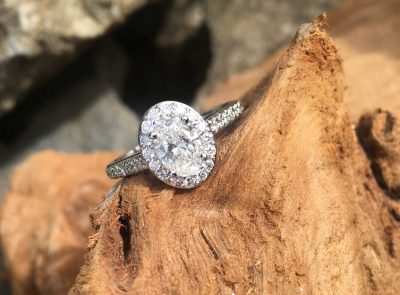
Pure white. The rarest of precious metals.
A supremely secure setting for diamonds. For an expression of love that will last a lifetime, platinum is the perfect choice.
I hope to answer the questions you might have when selecting your platinum engagement and wedding rings.
From classic plain metal bands to gem-set design statements, platinum wedding bands offer styles to suit every taste, but there are a few general considerations.
Pure
Platinum jewellery is mostly 95% pure. It has a naturally white lustre that helps to reflect radiance of diamonds. Platinum does not fade or tarnish, but keeps its pure white colour for a lifetime.
Rare
The more rare something is, the more valuable it becomes. Platinum is 30 times more rare than gold. If all the platinum ever mined were poured into an Olympic swimming pool, it would be scarcely deep enough to cover your ankles. By comparison , the world’s gold would fill more than three pools.
Eternal
The density of platinum makes it more durable than other jewellery metals. It does not change shape or wear away so precious stones are held firmly and securely. That is why virtually every famous gemstone, from the Star of Africa to the Hope Diamond, is set in platinum.
Band Profile
This describes the shape of the exterior of the band and there are two main types. Round profiles are also called ‘d-shaped’, or ‘domed’. Flat describes a band with a flattened outer surface.
Most outside profiles are available in ‘Court Style’, where the inside edge of the ring curves to fit the finger more comfortably, reducing the chances of skin abrasion or irritation.
Band Width
This is the horizontal measurement of the band. Standard widths are between 3mm and 6mm, but it is down to the individual. Wider bands allow for more design details and engraving.
It is also possible to buy engagement rings and wedding bands that are part of a matching set.
